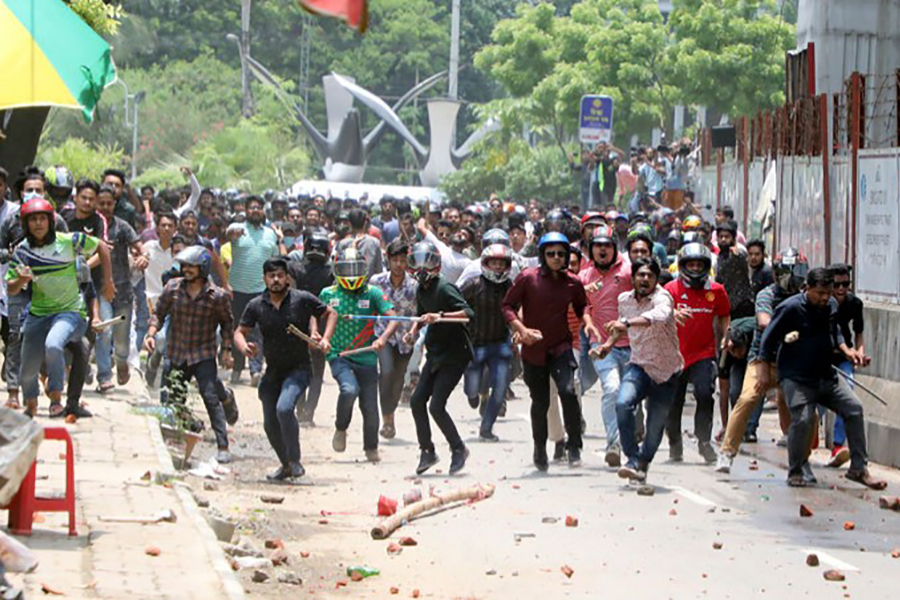
Published :
Updated :

The High Court has recently upheld the punishment the trial court had handed down to the convicts in the case over the murder of Abrar Fahad, a student of Bangladesh University of Engineering and Technology, in 2019. The second-year student was beaten to death inside a residential hall by activists of the Chhatra League, the student wing of the then ruling Awami League. Campus violence and killings have long been a raw sore in Bangladesh's higher education with the perpetrators often getting off scot-free mainly because of their political connection. However, political patronage could not save the killers of Abrar Fahad as the murder triggered huge uproars among the public over the cold-blooded decimation committed by dozens of Chhartra League leaders and activists. The investigators pressed charges against the suspected killers and the trial court awarded punishment when the Awami League was in office. Now, with that party not in power, the trial process has gained pace. Public expectation is that the verdict delivered in the case will be executed as fast as possible following all legal processes. If the verdict is executed, it will go down in the country's history as a milestone judgment against ragging and killing on the campus.
Campus violence and killings have long cast a dark shadow on academic environment here, threatening the safety of students and the integrity of educational institutions. Bangladesh has a long history of student politics, with various student organisations affiliated with major political parties. Over the years, these student organisations frequently engaged in violent confrontations on campuses, particularly of the public universities, leading to tragic deaths and injuries. Cold-blooded murders also took place, like the one involving Abrar Fahad.
There is no denying that political patronage is a major contributor to campus violence. Student bodies with political links often clash over the control of dormitories, other campus resources and maintaining a grip on university administration, etc. Inadequate security measures in universities allow violence to go unchecked.
The frequent incidents of campus violence instil fear in the hearts of students, hampering academic activities and discouraging free speech. Many students avoid involvement with opposition or out-of-power political forces in fear of retaliation, while others face immense pressure to align with influential student groups for survival. Apart from hampering academic activities, campus violence tarnishes Bangladesh's global image in higher education. International students and scholars get hesitant to engage with institutions that fail to ensure safety.
Campus violence and killings in Bangladesh are a grave concern that demands immediate action from the government, university administration, and society as the country cannot afford campus violence to go unchecked. It must be checked at all costs. Several steps can be taken to that end. Universities should enforce strict policies against violence-prone student organisations. They should install surveillance cameras, increase security personnel, and set up emergency response teams to help deter violence. Perpetrators of campus violence must face swift and exemplary punishment as part of a deterrent. The execution of Abrar Fahad murder case verdict will certainly play a key role in checking campus violence.
With a non-political interim government in office now in Bangladesh, incidents of campus violence have declined, much to the satisfaction of the general people. But a question pops up in the public mind - what will happen when this government will go and a political government assumes power? It will certainly be a challenge to sustain this trend of low campus violence rate, but will not be impossible. People expect our political parties - be they in power or out of power - to play a responsible role in this matter.
ramansrdk@gmail.com


 For all latest news, follow The Financial Express Google News channel.
For all latest news, follow The Financial Express Google News channel.